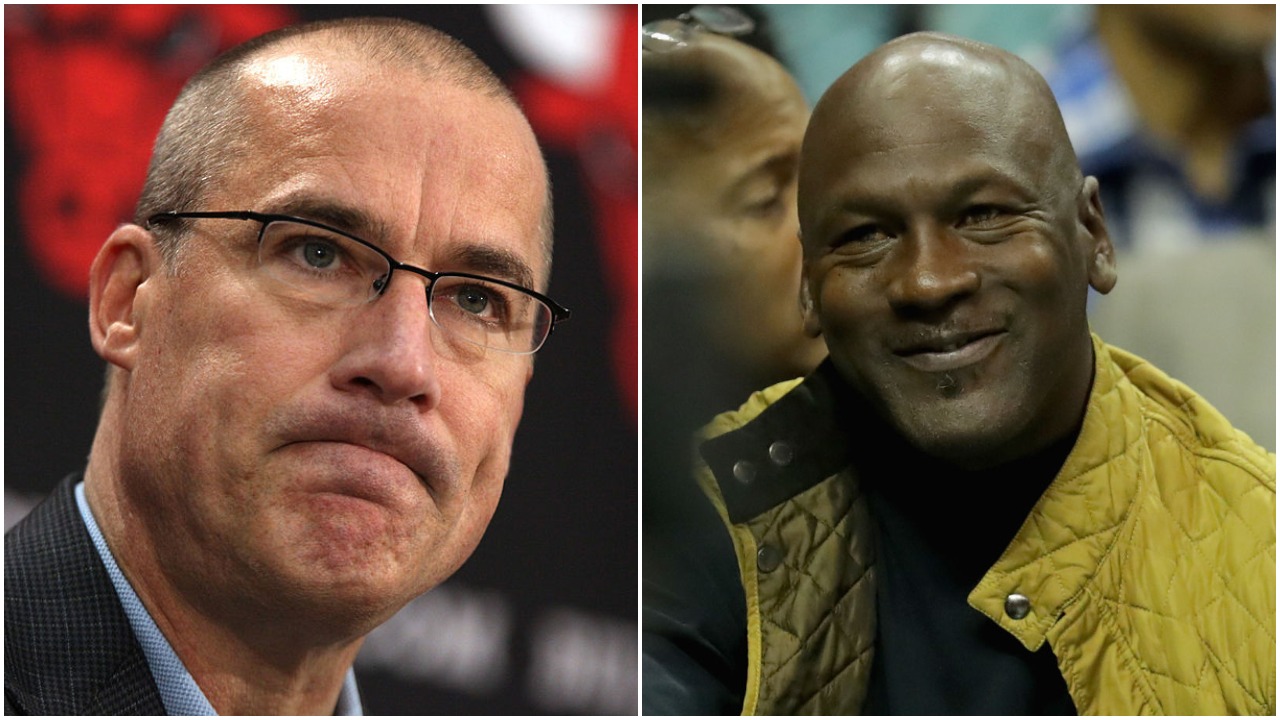NCAA
There is a Season That Exists Where John Paxson Was Better Than Michael Jordan

You’re not likely to find anyone on the planet that truly believes that John Paxson was a better basketball player than Michael Jordan. It’s true that Jordan owes a lot to Paxson, who helped him win three NBA titles with the Chicago Bulls, but if you actually heard someone say that Pax was better than MJ, you’d go ballistic, correct?
However, and I know I’m reaching here, I was able to find one basketball season nearly 40 years ago in which John Paxson actually had better numbers than did Michael Jordan, although MJ can still claim a much bigger victory that year than some random statistical analysis. But it’s still fun to take a look at these types of things so let’s dive into the season that was 1981-1982, Michael Jordan’s first year at North Carolina.
Michael Jordan wasn’t even the best player on his own team his first year at North Carolina
While some may choose to forget this at times, Michael Jordan was not the best player on his own team when he arrived at the University of North Carolina in 1981. That honor actually belonged to James Worthy, who was in his junior season at UNC when Jordan came to Chapel Hill. That particular Tar Heels team actually had three future NBA stars on it in Jordan, Worthy, and Sam Perkins. Perkins would later team with Worthy on the Los Angeles Lakers team that lost to Jordan’s Bulls in the 1991 NBA Finals. But at this time, young Mike Jordan was the new kid on the block.
Meanwhile, John Paxson was in his junior season at Notre Dame playing for Digger Phelps. It had taken some time for Pax to develop but he had come into his own for the Fighting Irish and was easily the best player on the team and had one of the best seasons in college basketball that year.
John Paxson had a better statistical year in 1981-1982 than did Michael Jordan and earned more accolades as well
If you’re going on straight talent, there’s no question that Michael Jordan was the superior player, even then, but John Paxson still had the better statistical season than did his future teammate in Chicago.
So let’s first look at Michael Jordan. In 1981-1982, Jordan played 34 games at North Carolina and averaged 31.7 minutes per game. He shot 53.4% from the floor, 72.2% from the free-throw line, and averaged 13.5 points, certainly fantastic numbers for a freshman at that time, and won ACC Rookie of the Year for a UNC team that finished the season with a 32-2 record.
On the flip side, John Paxson played 27 games for Notre Dame that season, a really bad Fighting Irish team that finished 10-17. But Paxson stood out. He shot 53.5% from the floor, 77.4% from the charity stripe, and averaged a team-high 16.4 points per game. He was named a Second-Team Consensus All-American and was actually named to the First-Team by the National Association of Basketball Coaches. Go back and look at any of the first, second, or third teams that year by any organization and you won’t find Michael Jordan’s name anywhere.
So, as I said previously, I know I’m reaching here but for one year, John Paxson could legitimately say that he averaged more points and earned more accolades than Michael Jordan.
Both would be named All-Americans the following season, Jordan on the First Team and Paxson on the Second Team.
MJ still wins the 1981-1982 season overall
Despite not having the numbers that John Paxson had, we all know that Michael Jordan still won the 1981-1982 season. After all, he did hit the game-winning shot in the NCAA title game against Patrick Ewing and the Georgetown Hoyas, the game that essentially catapulted Jordan to superstardom.
In 1983, John Paxson was selected with the 19th overall pick in the NBA draft by the San Antonio Spurs. A year later, Michael Jordan was taken with the third overall selection by the Chicago Bulls. In 1985, the two former All-Americans became teammates in the Windy City, forming the backcourt that would lead the Bulls to three NBA titles. In their final series together, Michael Jordan averaged 41 points against the Phoenix Suns but it was Paxson who hit the most memorable shot, the game-winning three in Game 6. Just sayin’.











